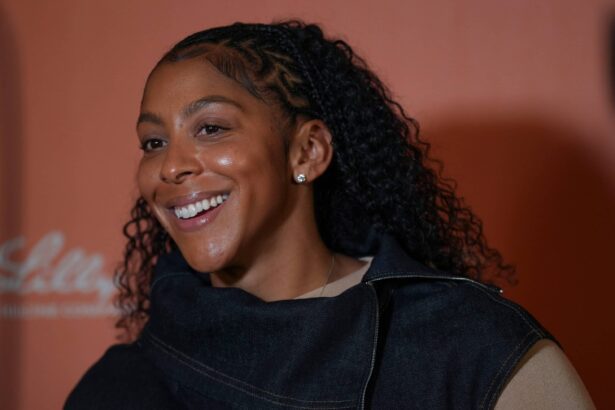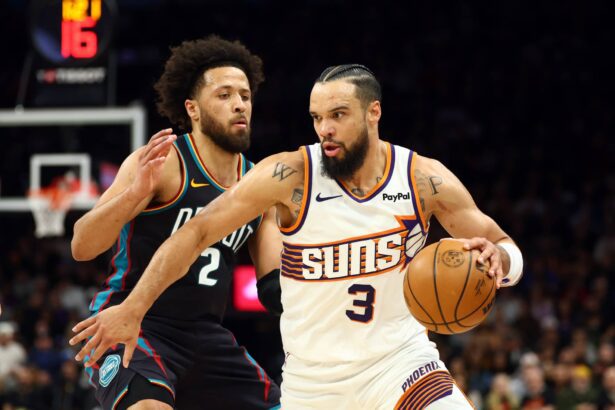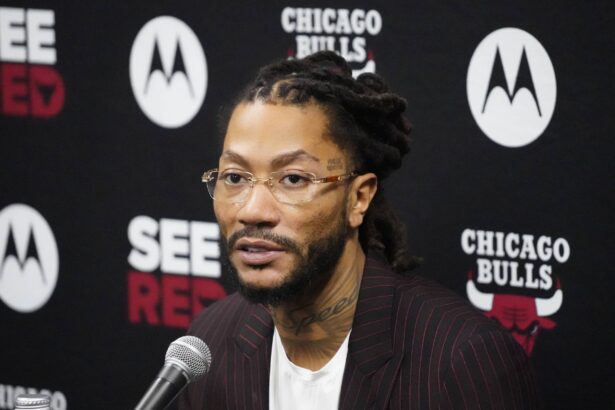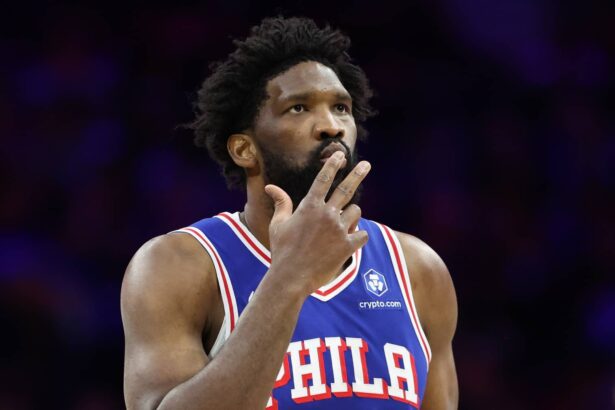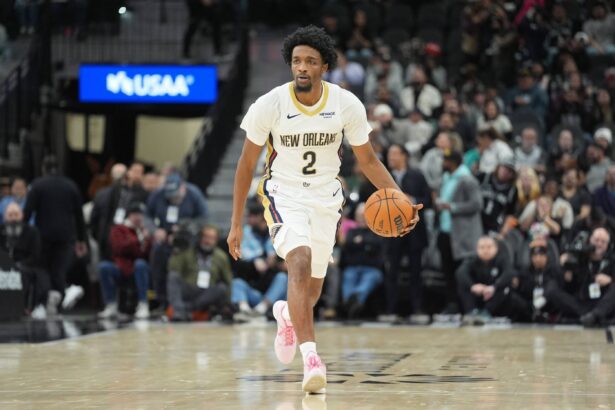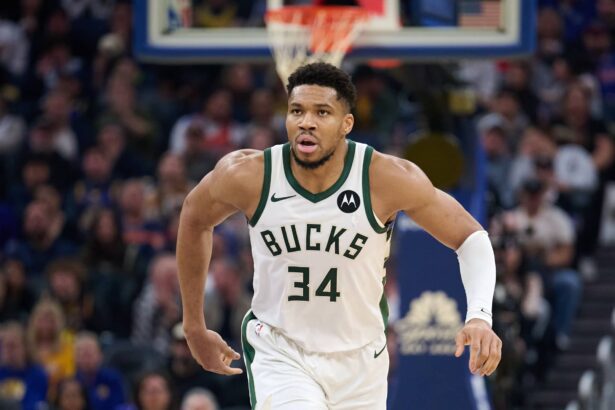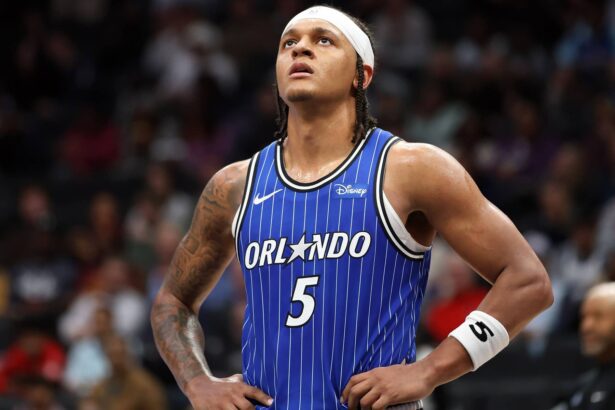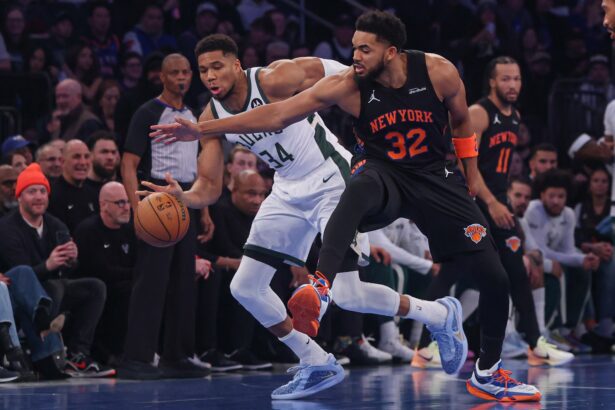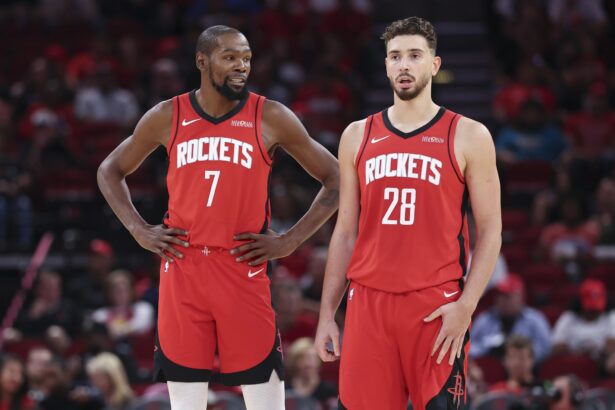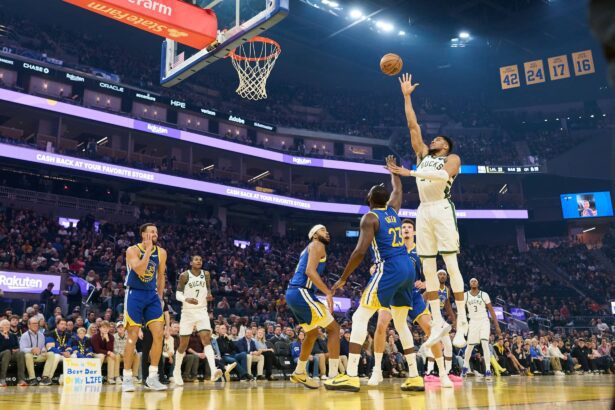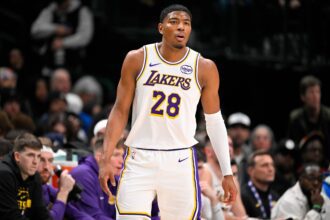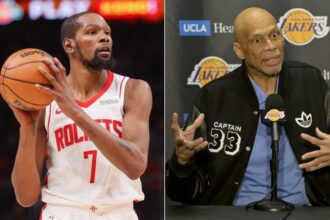Gilbert Arenas’ bold statement on Nightcap regarding Nikola Jokic being the worst MVP winner in the last 40 years has stirred controversy among basketball fans and analysts alike. While Jokic’s MVP wins have undoubtedly raised eyebrows due to various factors, labeling him as the “worst” MVP winner requires careful examination.
“Now, I do understand when they say this about Jokic. Jokic is probably, statistically, when it comes to overall game, the worst MVP winner. He is the worst MVP winner in the last 40 years.”
“When you’re talking about MVP, the guys outside of first and second place, their teams was first and second place. Outside of first and second place, their teams was first and second place. The people who won the MVP, their teams was first and second.”
“He is the worst MVP winner in the last 40 years.”
– Gilbert Arenas on Nikola Jokic
— NBACentral (@TheDunkCentral) April 4, 2024
Arenas pointed out the statistical prowess of Jokic, acknowledging his impressive overall game. However, he emphasized the importance of a player’s team’s performance in MVP considerations. Historically, MVP winners often hail from teams that finish at the top of their respective conferences, further bolstering their candidacy.
In the 2020-21 season, Jokic averaged 26.4 points, 10.8 rebounds, and 8.3 assists per game while shooting 55.6% from the field and 38.8% from 3-point range. Despite the absence of his teammate Jamal Murray for a significant part of the season, Jokic led the Denver Nuggets to the third seed in the Western Conference with a record of 47-25.
During the 2021-22 season, Jokic elevated his game further, averaging 27.1 points, 13.8 rebounds, and 7.9 assists per game. He maintained remarkable efficiency, shooting 58.3% from the field and 33.7% from beyond the arc. Jamal Murray was ruled out for the entire season due to injury. Despite this setback, Jokic managed to elevate his game to unprecedented levels, shouldering an immense load for his team in Murray’s absence.
The Nuggets finished sixth in the Western Conference with a record of 48-34, and Jokic’s brilliance earned him his second consecutive MVP award. The competitive landscape, with Joel Embiid’s remarkable performance and the Philadelphia 76ers’ higher seeding, added scrutiny to Jokic’s win.
In the ongoing 2023-24 season, Jokic continues to dominate, averaging 26.4 points, 12.3 rebounds, and 9.0 assists per game. He maintains exceptional shooting percentages, shooting 57.9% from the field and 34.1% from 3-point range. Under his leadership, the Denver Nuggets are currently tied for the best record in the Western Conference with a record of 53-23.
While Arenas’ assertion may spark debate, it’s essential to recognize the complexity of MVP evaluations. Jokic’s impact on the court, his ability to elevate his team’s performance, and his consistency in delivering stellar performances warrant consideration beyond just regular-season standings. Ultimately, whether Jokic deserves the title of “worst” MVP winner remains subjective, with arguments on both sides of the aisle.
Team Record Doesn’t Take Top Importance Anymore
Gilbert Arenas‘ assertion that Nikola Jokic is the worst MVP winner in the last 40 years due to his team’s performance overlooks a fundamental shift in the criteria for MVP consideration. While team success was historically a significant factor in MVP voting, recent years have seen a shift towards prioritizing individual performance and statistical excellence.
Arenas’ argument fails to acknowledge the evolution of the game and the changing dynamics of MVP selection. In today’s NBA, statistical dominance often trumps team success when determining the most valuable player. Jokic’s MVP-worthy performances over the past few seasons exemplify this shift in focus.
For instance, the MVP award received by Russell Westbrook in the 2016-17 season serves as a prime example. Despite his team, the Oklahoma City Thunder, finishing with a relatively modest record, Westbrook’s historic triple-double average of 31.6 points, 10.7 rebounds, and 10.4 assists per game captured the attention of voters. His individual brilliance and unprecedented statistical feats overshadowed the Thunder’s standing in the league.
Once the precedent of valuing individual excellence over team success was set with Westbrook’s MVP win, it became challenging to revert to the traditional emphasis on team record. Westbrook’s triumph signaled a paradigm shift in MVP criteria, emphasizing the importance of individual statistics and their impact on the game.
Furthermore, Jokic’s MVP-worthy performances speak volumes about the evolving nature of the award. His statistical dominance and versatility on the court transcend his team’s record. Despite the Denver Nuggets not consistently finishing as a top seed in the Western Conference, Jokic’s exceptional contributions make him a deserving recipient of MVP honors.
While team success was historically a crucial factor in MVP voting, the modern NBA landscape prioritizes individual performance and statistical excellence. The precedent set by players like Russell Westbrook underscores the importance of recognizing outstanding individual achievements, regardless of team record. As such, Jokic’s MVP accolades are a testament to his unparalleled impact on the game and his status as one of the league’s premier talents.
Thank you for being a valued reader of Fadeaway World. If you liked this article, please consider following us on Google News. We really appreciate your support.






